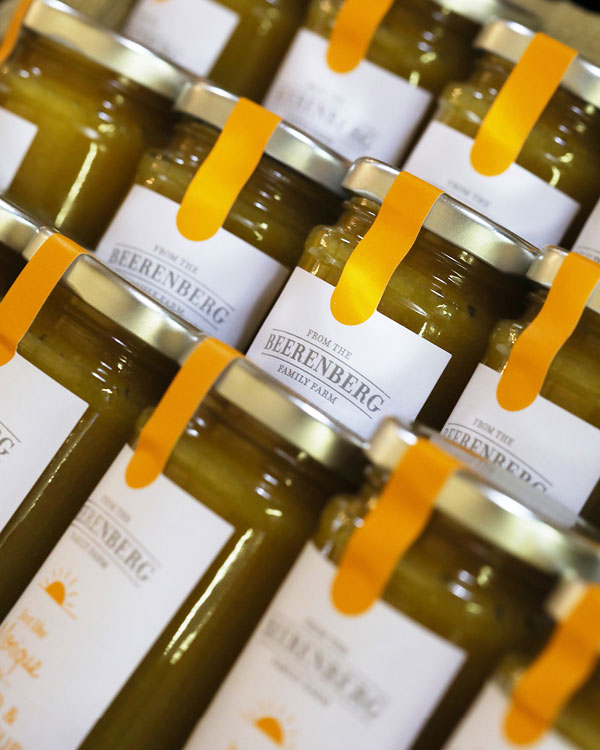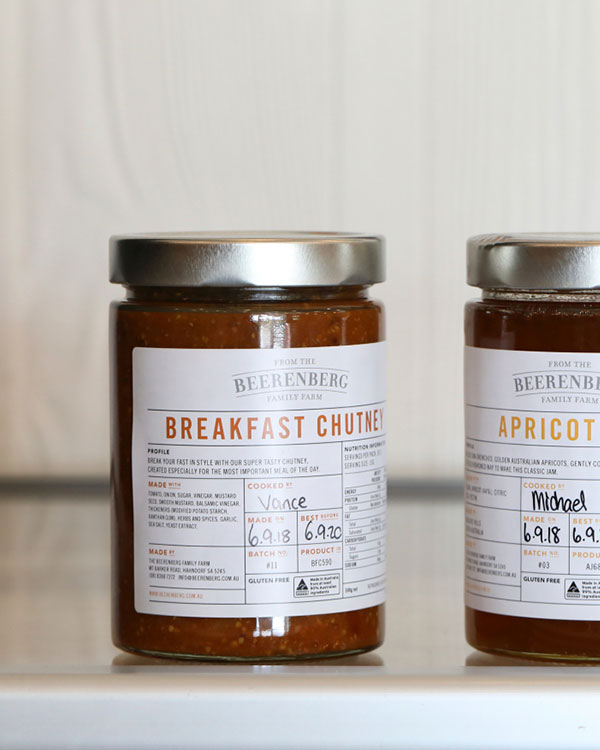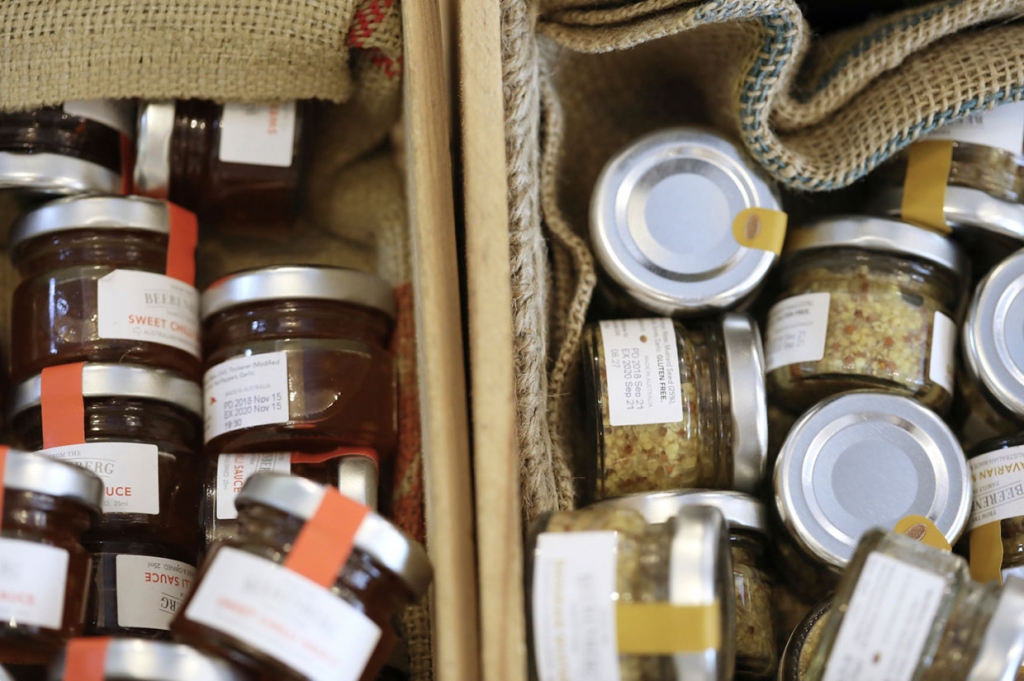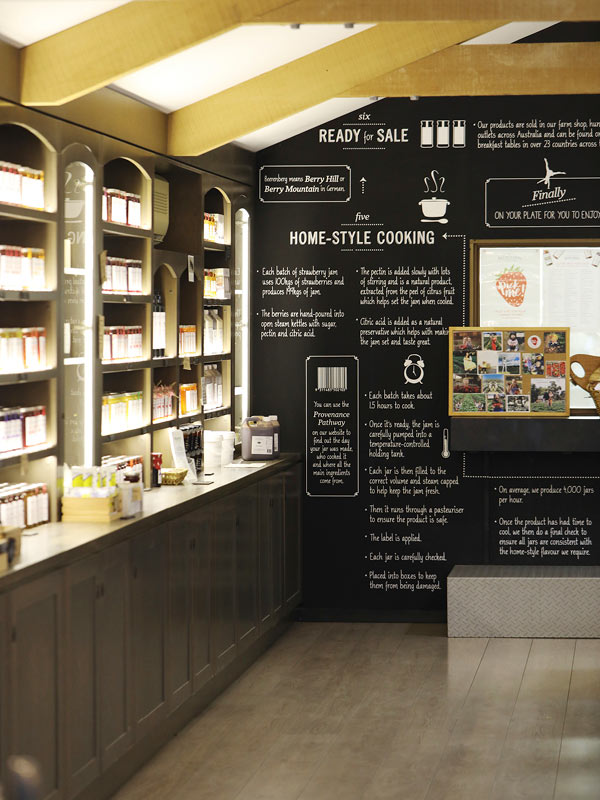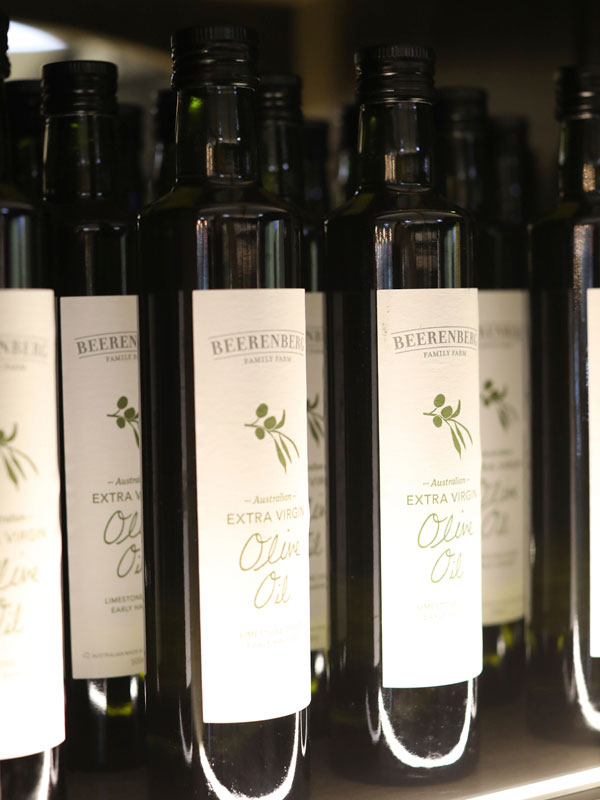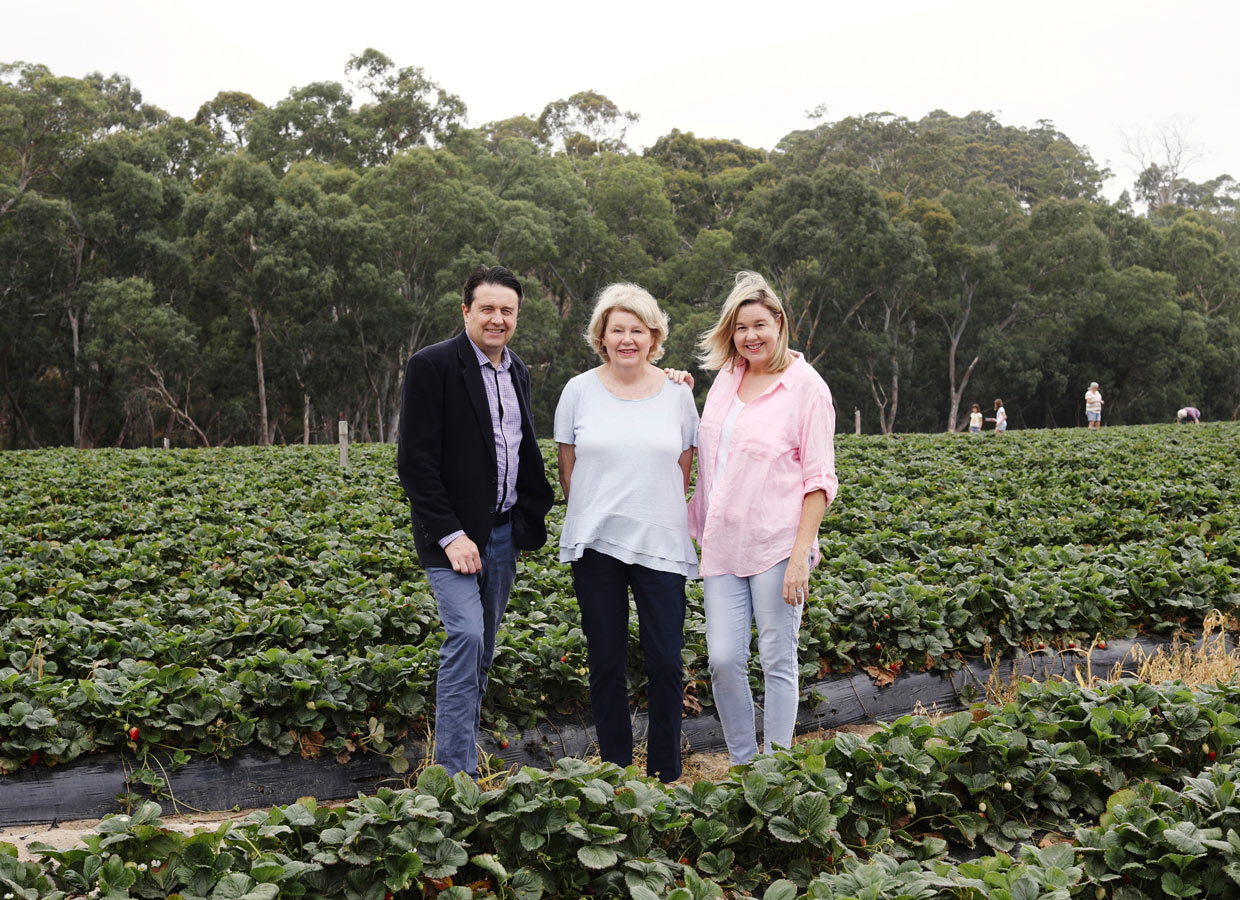
THE HUMBLE STRAWBERRY: FROM THE ADELAIDE HILLS TO THE WORLD
“Ever since I have been married, the family and the business have been the same thing. There is no separation. And some people find that all too much. We are not lovey-dovey sort of people because there is the strict business side that’s always there. We are very sensible. Robert, my youngest son, and I have huge conversations every day. We have very important phone calls about water pipes.” Carol Paech
I am fascinated by the success of Beerenberg Family Farm – an Australian jams, condiments and sauces company located in the Adelaide Hills, South Australia. In 1970, Grant and Carol Paech planted their first strawberry patch and by 1971 they had made their first jam. Just 50 years later Beerenberg is considered a national icon, and loved by people not only in Australia, but in 25 countries around the world.
So how did this humble sixth generation Australian farming family turn their hand to retail – and so successfully? I had the pleasure of talking to Carol Paech, the joint founder of Beerenberg, and two of her three children Anthony (CEO) and Sally (Marketing Director). The media-shy Robert (Farm Director), was attending to the strawberries.
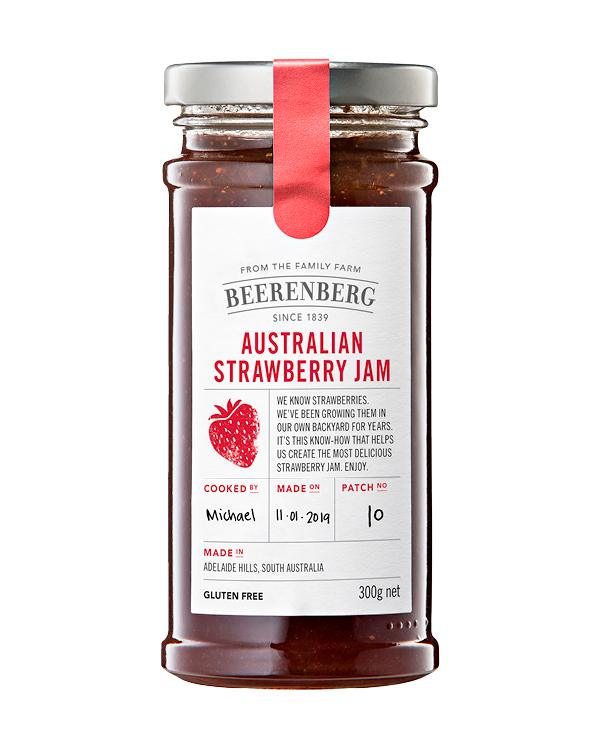
“Well, it all began when Grant and I were first married,” says Carol. “We were working in the family dairy farm but we soon realised it would be hard to make a living for the future. We had a milk round and we were selling our cow’s milk. It was so difficult to get money from our customers. They would leave coins in a milk container in exchange for the milk but quite often those coins would go missing. Sometimes people wouldn’t pay us, and we would have to chase them down the road. There are so many stories which I laugh about now. Anyway, the point is, the milk round was not going to feed us.”
Grant was an entrepreneur, an ideas man. He started growing a lot of new things on the farm, and one of those was strawberries.
“Why strawberries?” I ask.
“Everyone loves strawberries, it made sense to grow something that everyone loves,” explains Carol.
Carol shares that throughout her married life (sadly Grant has since passed away) they were always adjusting in order to create a better life. They were not afraid of change.
“I remember one day Grant decided he needed to become a super salesman. He found a course to do. He came home from the sales course with all these new techniques that he wanted to try out on me, and for me to learn. I said ‘no, you can take your sales tactics somewhere else, I’m not doing that. I draw the line, that can be your job.’”
And it seems that Grant mastered selling like an expert. They began selling a lot of strawberries.
“I have so many memories of the business as a child,” continues Carol’s daughter, Sally. “Dad used to get up in the middle of the night to load the truck and get to the markets as they opened. He did this six days a week. He would then have a sleep in the afternoon and when us kids came home from school he would have just woken up. I remember he could get a little grumpy.”
Carol pipes in, “Well he was working hard, he was tired.”
“Yes I can appreciate that now,” agrees Sally. “But at the time I sometimes thought of him as grumpy Dad. As kids, we weren’t thinking ‘oh poor Dad he works so hard.’”
“I also remember the phone ringing regularly in the middle of the night. Dad would get up and take the call. Quite often it was Hong Kong calling, wanting to place an order. Dad would say ‘send me a fax, here is the fax number.’ It was all pretty exciting as a kid.”
Growing up on the farm the Paech kids learnt how to be resourceful. You didn’t waste money, you used what was in front of you, sometimes resulting in some memorable tales.
“We had a pickled onion shed where the onions would be peeled and placed in large vinegar vats,” remembers Sally. “I still recall the smell of that shed. I was fascinated by it. Anyway, in summer the old vats were decommissioned and we used them as a swimming pool. Mum would just get a hose and fill them up and we would spend hours and hours in a vinegar vat on the back lawn. All our friends would come over and say ‘hey, can we go in the vinegar vat.’”
Anthony also has many great memories of growing up and helping out on the farm.
“I grew up in the house that had the strawberries out the front,” he laughs. “There is a picture of me as a baby in the front yard with the strawberries right there. I remember the sound of the strawberries dropping into buckets when they were being picked in the mornings. But there are so many other memories. I remember walking through the sweetcorn that we had back in the day and we had sprinkler pipes. We had to carry the pipes and fit them together and it was hard work carrying those pipes. I remember riding in the back of the ute around the farm and herding the cattle. We would run up the hills and Dad would yell instructions from the bottom but we could never hear properly so we would run the wrong way. Then we would hear jumbled angry speech, and we would run the other way.”
Anthony, Sally and Robert’s childhood is wrapped up in this farm. It is their past, their present and their future. It’s in their blood. Their passion and commitment to Beerenberg is so inspiring.
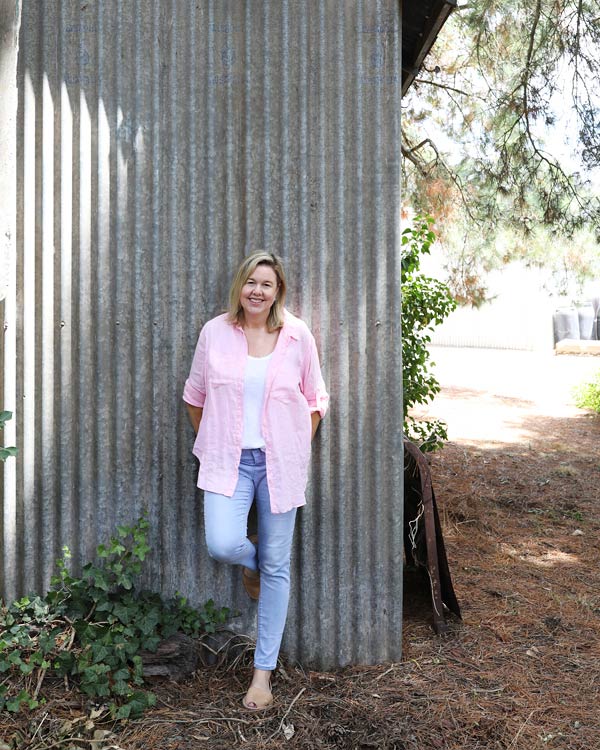
Sally Paech 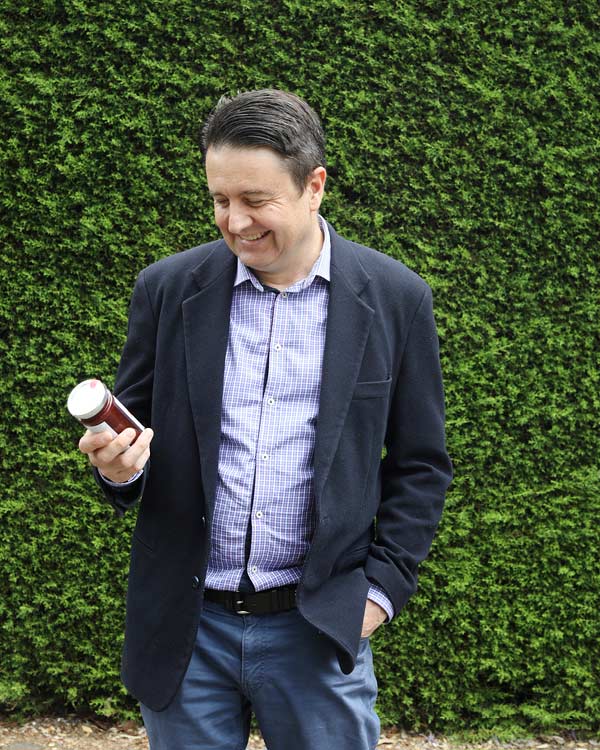
Anthony Paech
FAMILY – THE GOOD AND THE BAD
Like any family business there are good times and bad times. Siblings all passionately trying to work together, with their parents.
Anthony has worked off and on in the business since he left school. But after Anthony finished his MBA, and again came back to work in the business for the third time, Grant was finally ready to hand over the reins.
“What was that process like for you?” I ask. After all, you hear so many transition horror stories.
“Actually there weren’t too many hiccups,” he recalls. “I recognised that there was so much I had to learn from Dad in our transition period, particularly about the relationships that had been built up over the years with both staff and suppliers. But Dad also recognised that there were things that I was bringing to the table that he couldn’t do. He was the right man for the time, and now I was the right man for the time.”
Anthony attributes a lot of the transition success to the fact that he didn’t come in all gung-ho. He was respectful to what had been built and everyone knew that he was taking a long term perspective. Most people come in wanting to make immediate change but Anthony was calm and considered and people respected him for it.
“But let me just say it wasn’t always smooth sailing,” continues Anthony. “Dad had some very different ideas and if I had an idea he would say ‘No, we tried that and it didn’t work’. That was the answer to most of my suggestions. He was probably right most of the time but sometimes I would have liked to try it myself. I think I had a little entrepreneur inside of me that wanted to stretch my wings.”
Anthony explains to me that everything is a compromise when it comes to family business.
“You have my brother and sister who have their own ideas about risk and what they want,” he says. “It’s frustrating sometimes when I have an idea. My neighbour had an old Volkswagen and I wanted to buy this Volkswagen as it was so cheap, paint it as a strawberry and park it on the main street as an advertisement to the ‘pick your own’ strawberries experience we have at the farm. I thought that would be so amazing, relatively cheap and great advertising so I said to Rob (who lives near the farm) I’m going to buy this Volkswagen and all I need you to do on the weekend is drive down and park it on the street. But he didn’t want to. And I get it, it wasn’t Robert’s fault, he didn’t want to walk back. But that was the end of my idea.”
Sally shares that there have been many incredible times for her but in the reverse, occasionally she has wanted to call it a day, just for a moment. She doesn’t always see eye-to-eye with her brothers and that can be hard. But, any issues they work through. They are family. Sally believes it makes her a better person.
Carol shares, “I have this lovely video of when Sally and Anthony were little and they are throwing a ball to each other. Anthony is looking after Sally by rolling the ball to her so she can get it easily. It’s very sweet.”
“Really? that doesn’t sound like my brother when we were kids, are you sure?” Sally jokes.
THE QANTAS FACTOR
In the growth of any business there are pivotal moments or experiences that help shape the future. And one such moment for Beerenberg was in 1987 when John Bannon, the South Australian Premier at the time, flew Qantas and complained to the media that on his flight he ate Scottish and not Australian jam. ‘Why are we not eating Beerenberg or IXL?’ he complained. The Sunday Mail then ran a piece on the story. And the question was thrown to Grant Paech, ‘Why aren’t you making small jars, jars that could go on Qantas?’
“Grant didn’t quite know what to do about it,” says Carol. “He didn’t know how to get jars the right size. So the next day I typed up a letter to Mr Bannon requesting some help in getting the right sized jars for airlines in Australia. Some weeks later two men turned up at the door and said ‘We are from the government, and we are here to help you’. And they really did help us. They helped us find the right jars, implement a marketing manager, and implement a bigger jam making kitchen. It was pivotal.”
THE LAUNCH OF BEERENBERG’S NEW FACTORY
In 2018 Beerenberg opened their new factory. It was a nine-year vision, come to life.
“Walking into it for the first time was the most amazing feeling,” says Anthony. “You never really cross a line when you have your own brand, but there was a sense that we had done it. To achieve what we did and to get it done the way we wanted it on budget and on time was a miracle. I was very proud that day.” And again, it was another game-changer for the business. The management team moved their offices out from Carol’s home, and they now had the capacity to create a huge volume of product. The new factory has set the business up for the future.
Anthony tells me that for about one minute they patted themselves on the back. They had a family lunch where they celebrated but the brand is like a race that you never stop.
“It’s not about finding a balance, it’s about rebalancing,” shares Anthony. “We had been working really hard on the building and the factory, now it was time to rebalance and focus on the next thing.”
THE COLLECTIVE THING
The Paech family all agree on one thing. The family business is everything to them. It keeps them connected. If they are at a family gathering on the weekend, they inadvertently talk about the business. But they don’t mind. In fact, they love it.
“We are all putting our energy into something that is bigger than us,” says Sally. “It’s a collective thing and it will impact our children one way or another. All of us really believe we are custodians for the brand. Our job is to leave it in a better place than we found it, for the generations to come.”
The Paech family are very practical, but they also have a lot of heart. The family are so connected, so united. It’s this collective unison that looks to be the secret of their success.
ANTHONY’S PIECE OF ADVICE ON BUILDING A BRAND
I think you’ve got to be crystal clear on what you stand for. It’s easy to say, but most people don’t really know what they stand for. They are not values until you have to fight for them. It’s so easy to spout off ‘we believe in this, and we believe in that’, but until you have to forgo money for your ideal then it’s not a value.
ANTHONY’S BOOK LIST TO INSPIRE
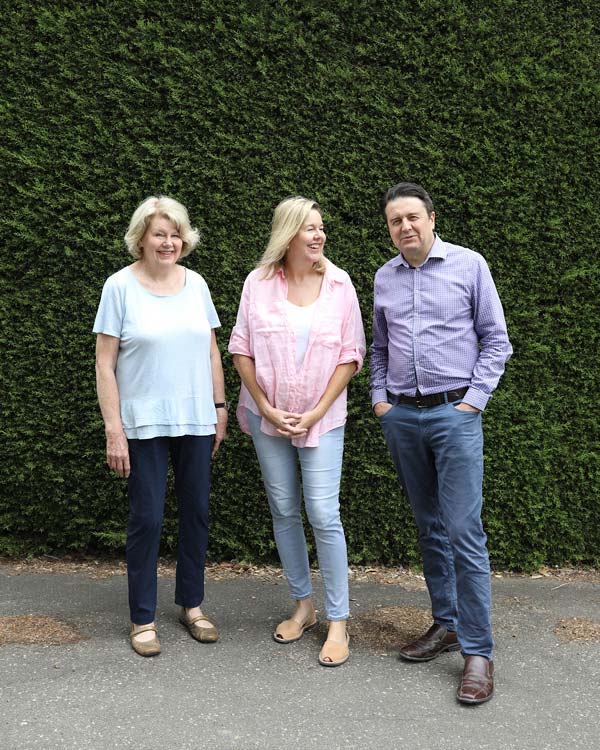
OTHER STORIES
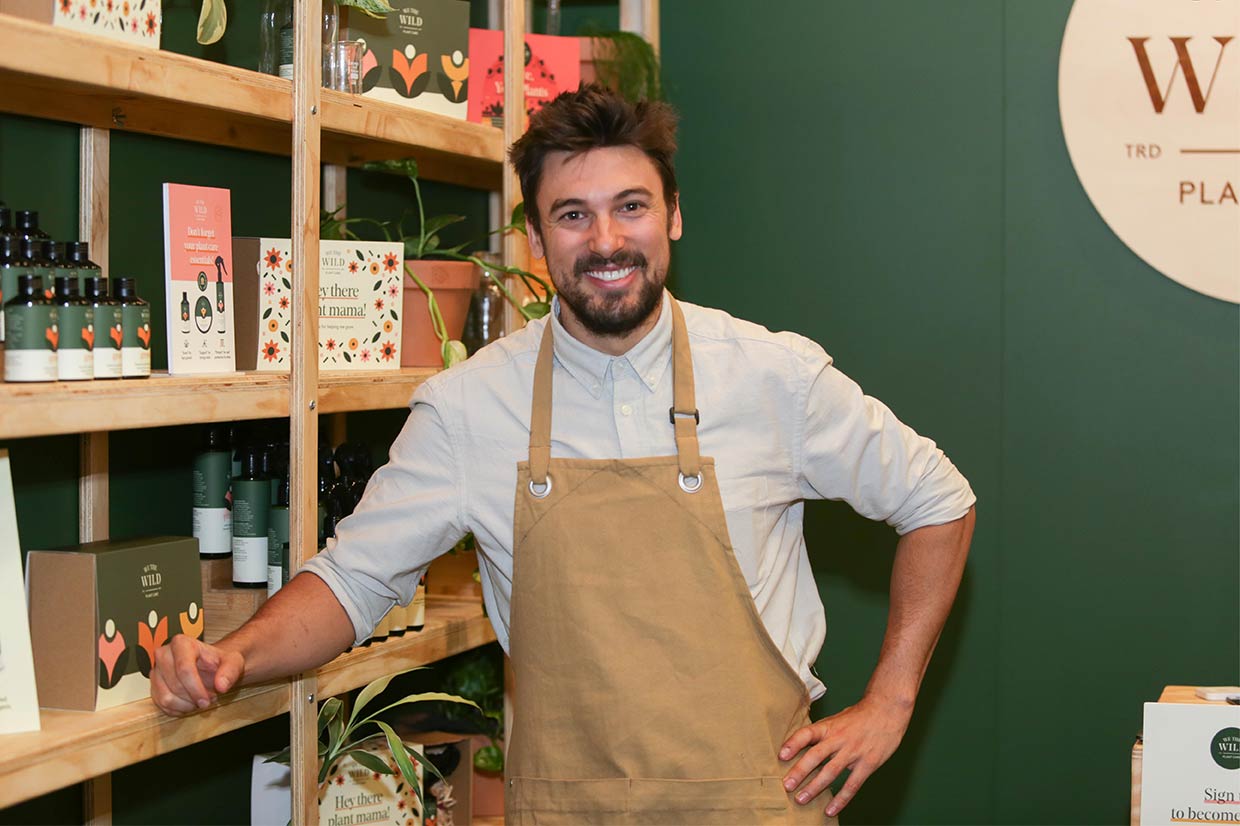
WE THE WILD, BRINGING BIODIVERSITY TO THE HOME
Plants aren’t meant to grow in pots, so they need a little extra help. We The Wild are bringing biodiversity into your home, organically…
read more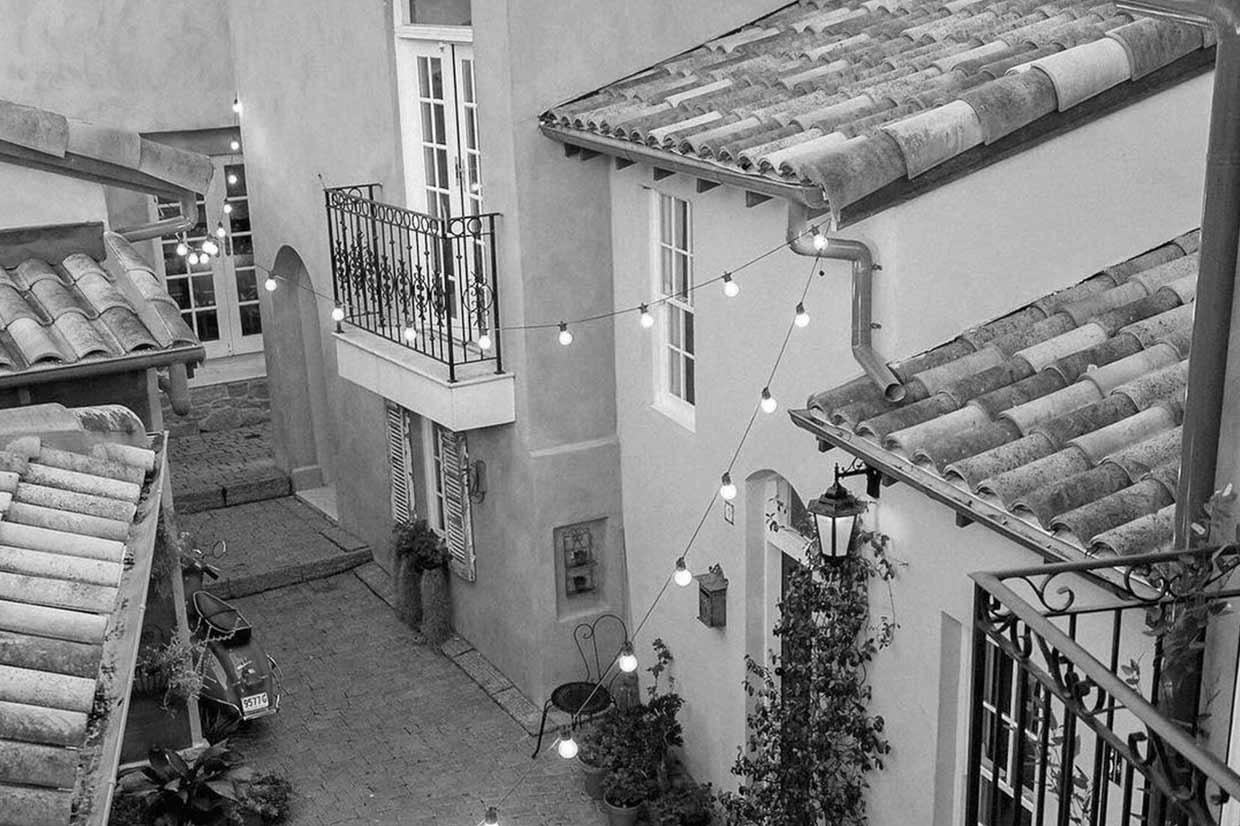
THINGS WE LOVE: GUESTLANDS
New South Wales is free! Which means it’s time to explore our region. We’ve found a Tuscan-inspired getaway just 40 minutes from Sydney CBD that’s sure to have you thinking you’ve hopped a flight in Europe.
read more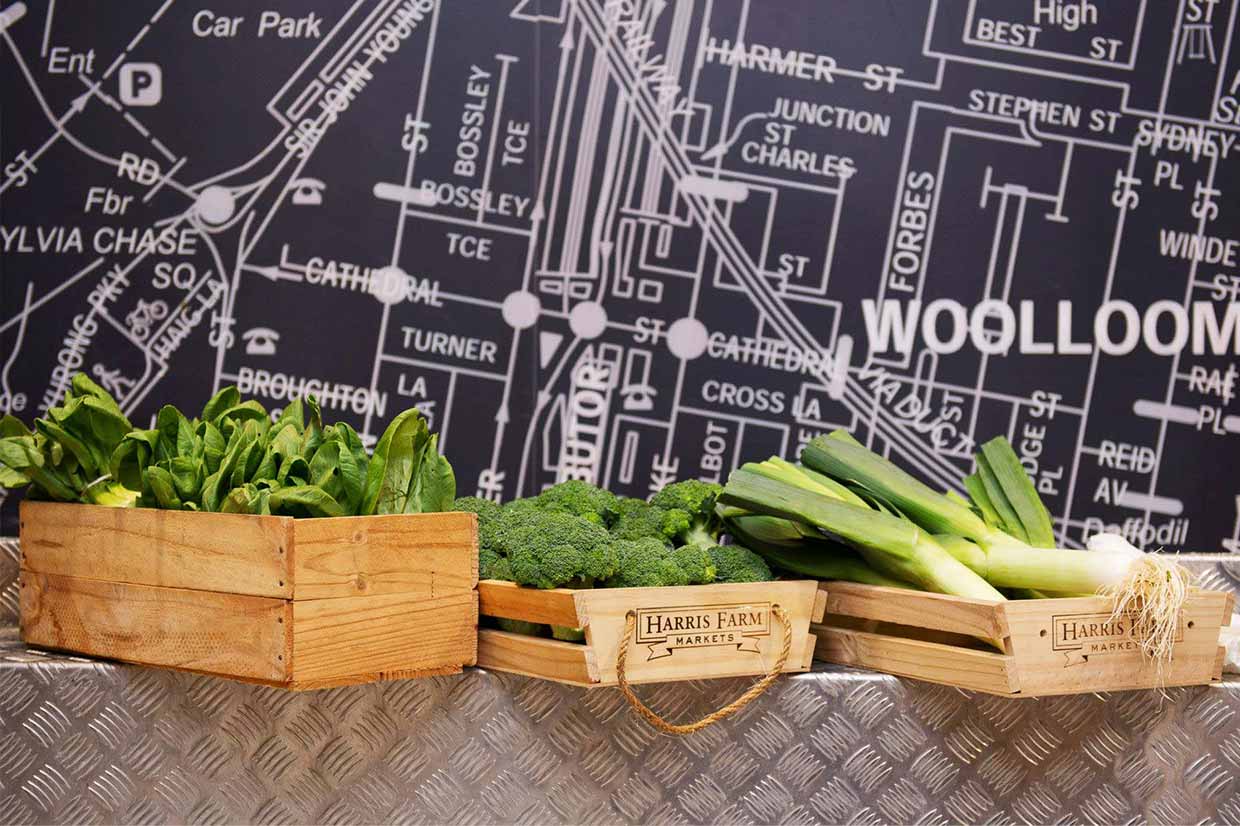
THREE COMPETITIVE BROTHERS – A RACE TO RUN HARRIS FARM
When three brothers figured out how to work as a team and not as competitors, Harris Farm flourished. Learn more from Tristan Harris, co-CEO of the family business.
read more
